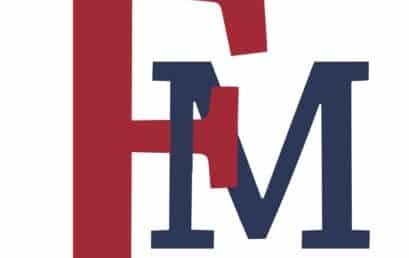PHYS 401 – Quantum Mechanics
Prerequisites/Corequisites: Take PHYS-220 PHYS-314. (Required, Previous). Credit Hours: Min: 3; Max: Description: Methods of quantum theory including quantum state vectors, operators, eigenvalue equations, and expectation values. The Schrodinger Equation and applications to quantum spins, bound particles, free particles, and scattering. Three-dimensional problems including the hydrogen atom. Perturbation theory and its application to atoms and molecules. […]
PHYS 397A – Research in Physics
Prerequisites/Corequisites: Credit Hours: Min: 1; Max: Description:
PHYS 397 – Research in Physics
Prerequisites/Corequisites: Credit Hours: Min: 1; Max: 3 Description: In conjunction with a physics faculty advisor, each student will complete one or more research projects in physics, health physics or astronomy. The projects are developed as a result of consultation between the student and the advisor. Students will be expected to complete a written report and […]
PHYS 316L – Nuclear Physics Laboratory
Prerequisites/Corequisites: Take PHYS-316. (Required, Concurrent). Credit Hours: Min: ; Max: Description:
PHYS 316 – Nuclear Physics
Prerequisites/Corequisites: Take PHYS-314. (Required, Previous). | Take PHYS-316L. (Required, Concurrent). Credit Hours: Min: 4; Max: Description: Topics include: natural and artificial radioactivity, nuclear reactions, nuclear models and structure, particle accelerators and detectors, neutron physics and reactors, and an introduction to elementary particles.
PHYS 301 – Classical Mechanics
Prerequisites/Corequisites: Take PHYS-202 PHYS-220 MATH-202. (Required, Previous). | Take PHYS-220. (Required, Previous or concurrent). Credit Hours: Min: 3; Max: Description: Classical mechanics using vector calculus applied to non-relativistic Newtonian dynamics: dynamics of particles and rigid bodies, collisions, and vibrational and wave motion. Lagrangian and Hamiltonian formulations of mechanics to be included.
PHYS 220 – Computational Methods for Phys/Engn
Prerequisites/Corequisites: Take PHYS-201. (Required, Previous). Credit Hours: Min: 3; Max: Description: An introduction to the computational tools and numerical methods used in physics and engineering. Students will use both spreadsheets (e.g., Excel) and numerical packages (e.g., Python) to obtain numerical solutions to a wide variety of physical problems, including: motion with air resistance, oscillations, nuclear […]
PHYS 215L – General Physics I Laboratory
Prerequisites/Corequisites: Take PHYS-215. (Required, Concurrent). Credit Hours: Min: ; Max: Description:
PHYS 215 – General Physics I
Prerequisites/Corequisites: Take MATH-132. (Required, Previous). | Take PHYS-215L. (Required, Concurrent). Credit Hours: Min: 4; Max: Description: Algebra-based introduction to mechanics, thermodynamics, and waves. Topics include motion in one and two dimensions, Newton’s laws of motion, equilibrium, work, energy, momentum, rotational motion, gravity, heat, waves, and sound. Examples from medicine and biology will be included whenever […]
PHYS 202 – Technical Physics III
Prerequisites/Corequisites: Take PHYS-201. (Required, Previous). | Take MATH-202. (Required, Concurrent). | Take PHYS-202L. (Required, Concurrent). Credit Hours: Min: 4; Max: Description: Calculus-based introduction to classical electricity and magnetism. Topics include Coulomb’s Law, electric fields, Gauss’ Law, electric potential and potential energy, electric components and circuits, magnetism and magnetic fields, magnetic forces and torques, magnetic materials, […]
PHYS 200 – Technical Physics I
Prerequisites/Corequisites: Take MATH-132 or MATH-137. (Required, Previous or concurrent). | Take PHYS-200L. (Required, Concurrent). Credit Hours: Min: 4; Max: Description: Introduction to waves, fluids, thermodynamics, optics, atoms, nuclei, and particles. Topics include wave motion, sound waves, buoyancy, temperature, gas laws, heat, calorimetry, states of matter, laws of thermodynamics, light, reflection, refraction, diffraction, interference, standing waves, […]
MATH 425 – Numerical Analysis
Prerequisites/Corequisites: # Take MATH-203 # Take MATH-213 or CS-226. (Required, Previous). Credit Hours: Min: 3; Max: Description: Techniques and types of errors involved in computer applications to mathematical problems. Topics include techniques for solving equations, systems of equations, and problems in integral calculus. Computer solutions for several problems will be required.
